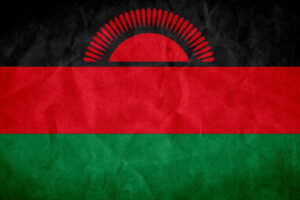By Astrid Zweynert
Oxford, England — The custom in Malawi of sending girls to sexual initiation camps is just as harmful as child marriage and must end if the nation is serious about protecting girls’ rights, a teenager who escaped being a child bride said.
Memory Banda, 18, said the tradition of early sexual initiation, seen as a way of preparing pubescent girls for marriage, was forcing girls to have sex and exposing them to the risk of HIV infection.
Banda said even if girls were not sent to the camps, they may receive a night time visit from an older man.
Known as a “hyena”, the man sent by village elders has sex with girls as young as nine to prepare them for marriage.
“It’s forced sex,” Banda, 18, told the Thomson Reuters Foundation in an interview late on Thursday. “Most girls end up being pregnant, and many drop out of school.”
In February, Malawi passed a law banning child marriage and raised the minimum age for girls to marry to 18 in a move hailed by campaigners seeking an end to the practice that affects half of all girls in the country.
Banda’s own sister was married at 11 to a man in his thirties, who had made her pregnant during a sexual initiation.
But Banda escaped her sister’s fate because she was living with an aunt who supported her resistance to early marriage. Banda later joined the Girls Empowerment Network, a Malawi-based charity that for years tried to get lawmakers to end child marriage.
Banda said the priority now was to ensure the new law was enforced and to encourage village leaders to speak out against early sexual initiation.
“The law will make a big difference and have a big impact, but only if we work with communities and girls to address the issues openly,” Banda said on the sidelines of the Skoll World Forum on Social Entrepreneurship.
Malawi has shown signs of progress already with a growing openness to discussing girls’ sexual rights and dozens of communities in the southern African country banning early sexueyal initiation, she added.
Every year 15 million girls are married as children with one in three girls in the developing world married before they are 18, according to campaign group Girls Not Brides.
Critics say early marriage deprives girls of an education, increases the risk of domestic violence, death or serious injuries if they have babies before their bodies are ready.
Yet the practice persists because some societies view girls as a financial burden, others believe a girl should marry as early as possible to maximise her fertility.
(Reporting by Astrid Zweynert; Editing by Katie Nguyen)
